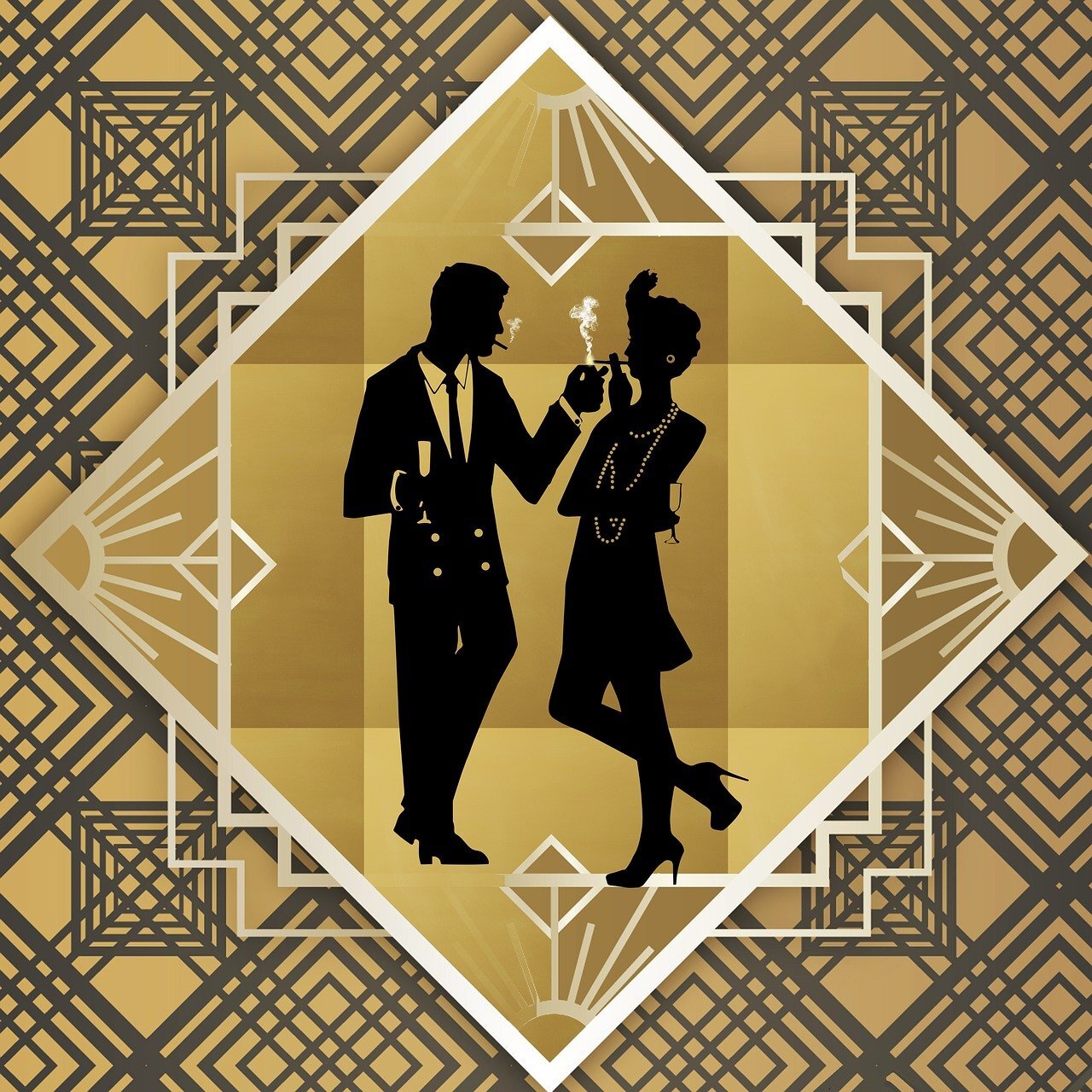Image by Please Don't sell My Artwork AS IS from Pixabay
The silhouette of a moving cat wavered across the moonlight, and turning my head to watch it, I saw that I was not alone – fifty feet away a figure had emerged from the shadow of my neighbor’s mansion and was standing with his hands in his pockets regarding the silver pepper of the stars. Something in his leisurely movements and the secure position of his feet upon the lawn suggested that it was Mr. Gatsby himself, come out to determine what share was his of our local heavens.
Thus it was on a moonlit night in West Egg that the reader first glimpses the mysterious man whose lifestyle and desires epitomized the decadence, free-spiritedness, and idealism that defined the Jazz Age. Long recognized as a classic of American literature and very often styled as the “Great American Novel,” The Great Gatsby by F. Scott Fitzgerald has now found its place among the legal classics available to users of HeinOnline through its Legal Classics Library. The move was made possible by the Sonny Bono Copyright Term Extension Act, which in 1998, extended the copyright term from 75 years to 95. The effects of this legislation were first seen in 2019 when thousands of copyrighted works from 1923 first entered the public domain. For The Great Gatsby, this legislation meant that on January 1, 2021, it joined several other published works from 1925, such as Mrs. Dalloway by Virginia Woolf, An American Tragedy by Theodore Dreiser, Buster Keaton’s Go West, and several compositions by “Jelly Roll” Morton and Gertrude “Ma” Rainey, and entered the public domain. So, why is all of this so significant? The import of this milestone is that these works are now free from any copyright restrictions and anyone can use them without having to obtain permission from the copyright owner.
Gaining a place in HeinOnline’s Legal Classics Library is certainly a testament to the importance of The Great Gatsby in the sphere of great American literature. From its sometimes scathing view of the nouveau riche and the decline in societal values, The Great Gatsby continues Fitzgerald’s satirical view of the elite, the loss of morality, and the disillusionment of youth first seen in This Side of Paradise and The Beautiful and the Damned. For its vision of a society spiraling out of control, its presentation of the culture of the time, and its echoing of the author’s own inner turmoil, HeinOnline has honored the work and given it the “green light” to be placed it among the ranks in a collection featuring the works of “some of the greatest minds in history.”
For those who have read the novel, they know that, in the opening chapter, Gatsby is not contemplating the starry sky but rather is gazing at the green light across the harbor, the one at the end of Daisy’s dock. The green light not only symbolized his love for her but also his desire to grasp the American dream and all that it embodied. With its inclusion in HeinOnline’s Legal Classics Library, The Great Gatsby, unlike its eponymous protagonist, has earned a true place among the elite, and Fitzgerald, despite his beliefs to the contrary, may be the author of the one of the greatest works of American literature.


